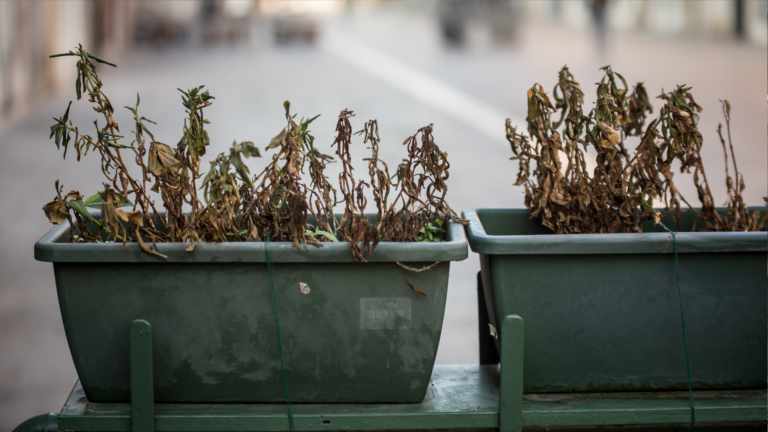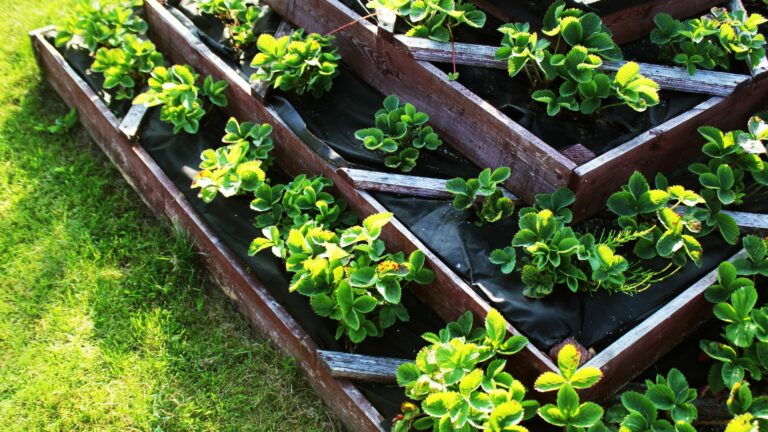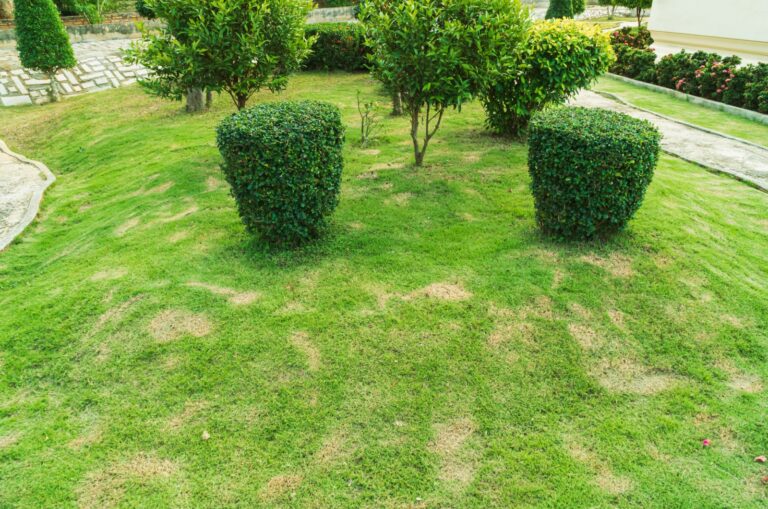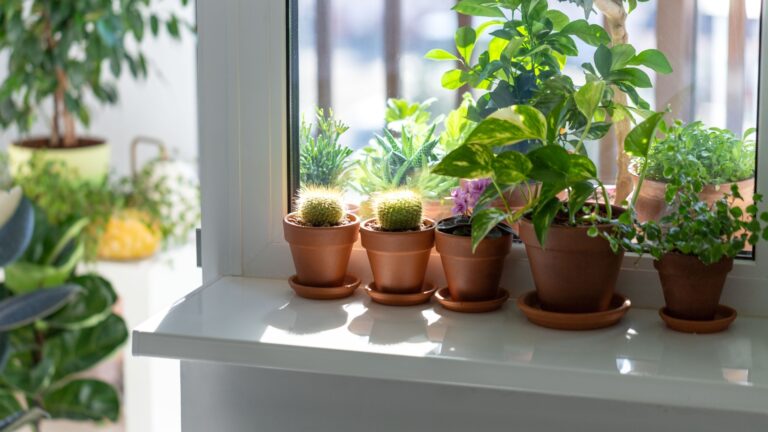27 Smart Tricks to Prevent Weeds From Growing In Your Gravel
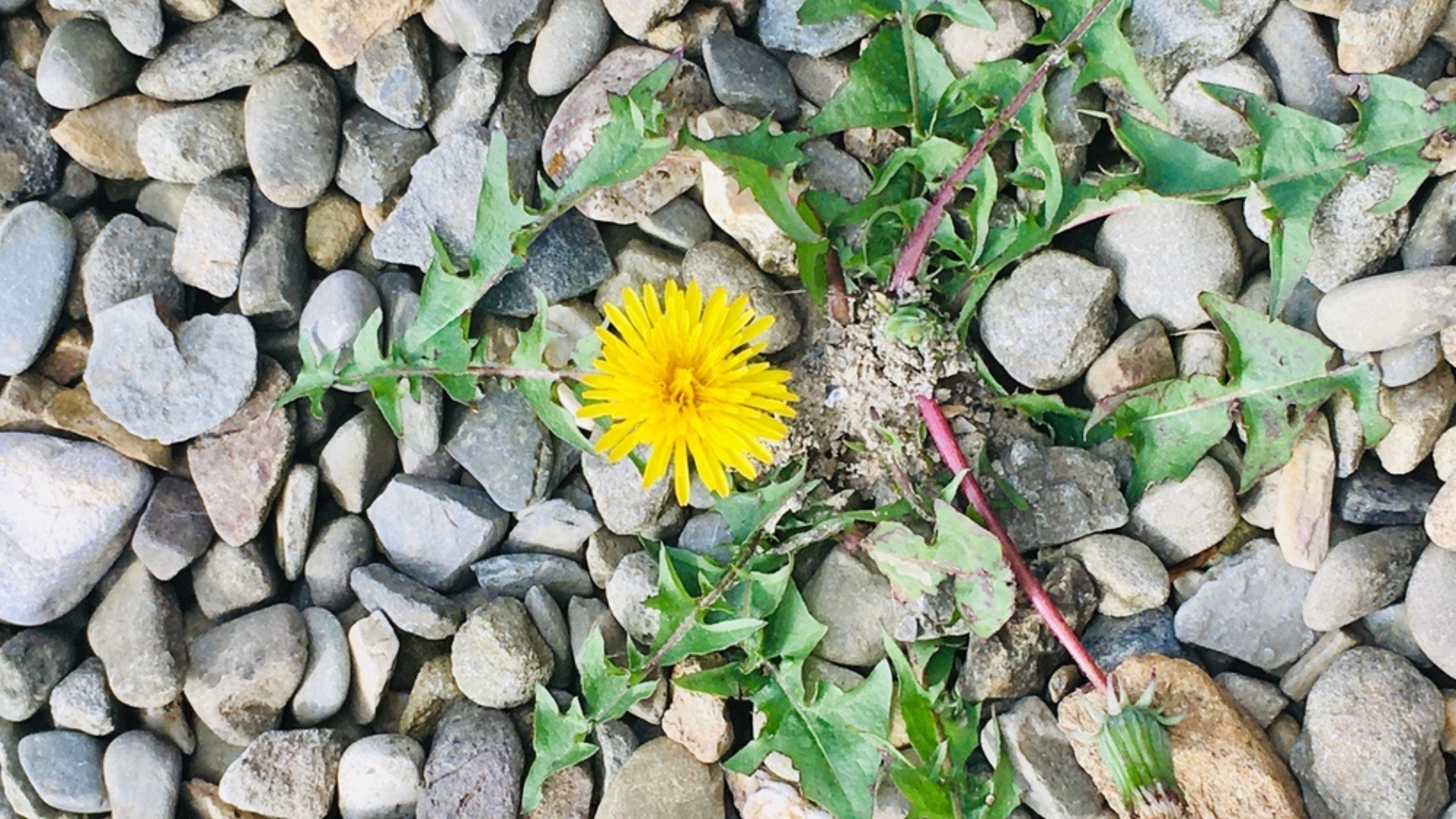
Howdy, garden warriors! If you’ve ever been locked in a battle with those relentless weeds creeping through your gravel, you’re not alone.
I remember my first showdown—just me, a rusty spade, and a whole lot of wishful thinking. I felt like a knight in battered armor, going toe-to-root with a leafy army that wouldn’t quit.
After plenty of trial, error, and a few sore muscles, I picked up some clever tricks to outwit those green invaders.
So slip on your gloves and grab your grit—we’re about to dig into 27 smart ways to give those weeds the boot for good!
1. Vinegar Spray
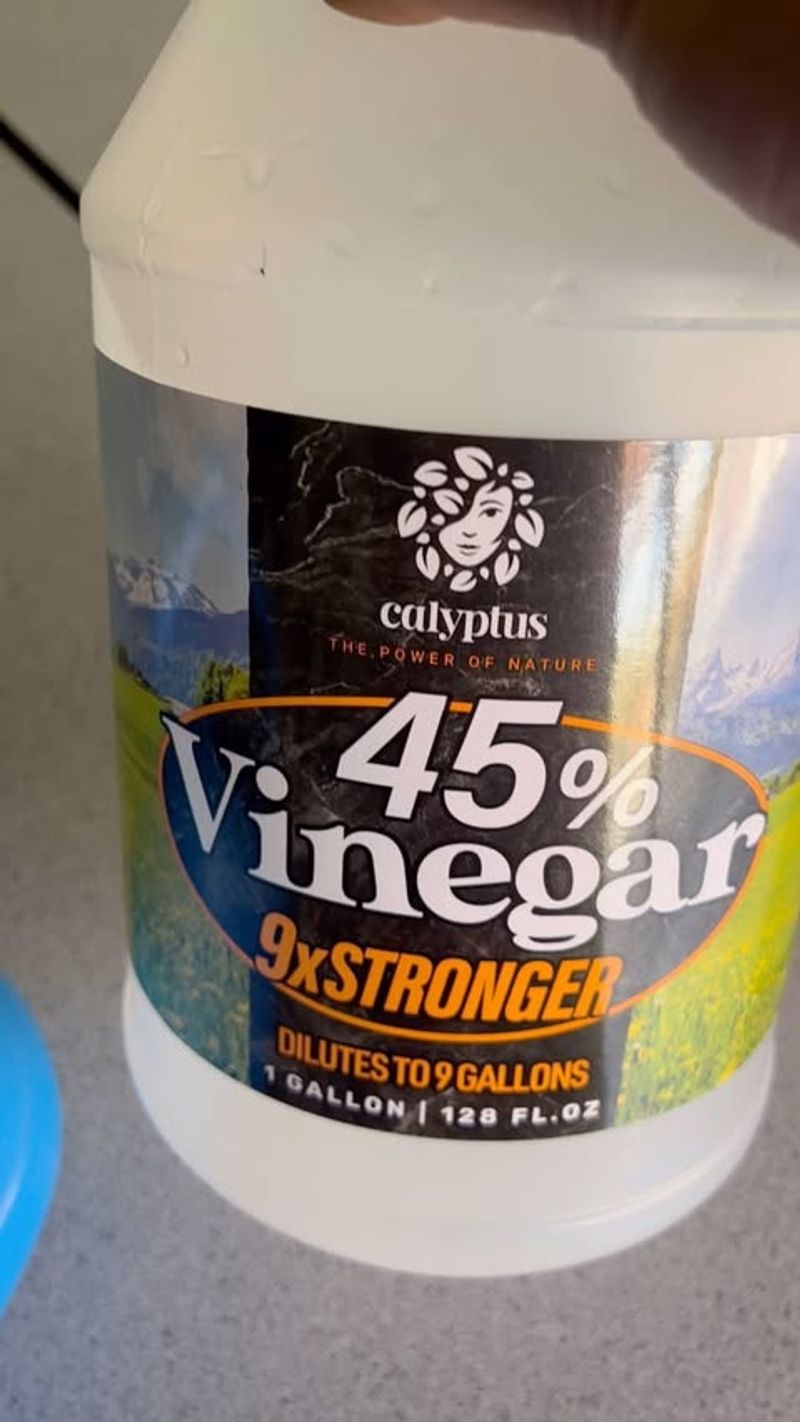
Using vinegar as a natural weed killer is both effective and environmentally friendly. Start by pouring household vinegar into a spray bottle, and then apply it directly to the weeds. The acetic acid in vinegar will dry out the leaves, causing the weeds to wither.
For best results, choose a sunny day for your vinegar assault, as the sun enhances the drying effect. Remember, vinegar is non-selective, so aim carefully to avoid harming nearby plants. This method is especially useful for spot-treating small areas where weeds have taken hold.
2. Boiling Water
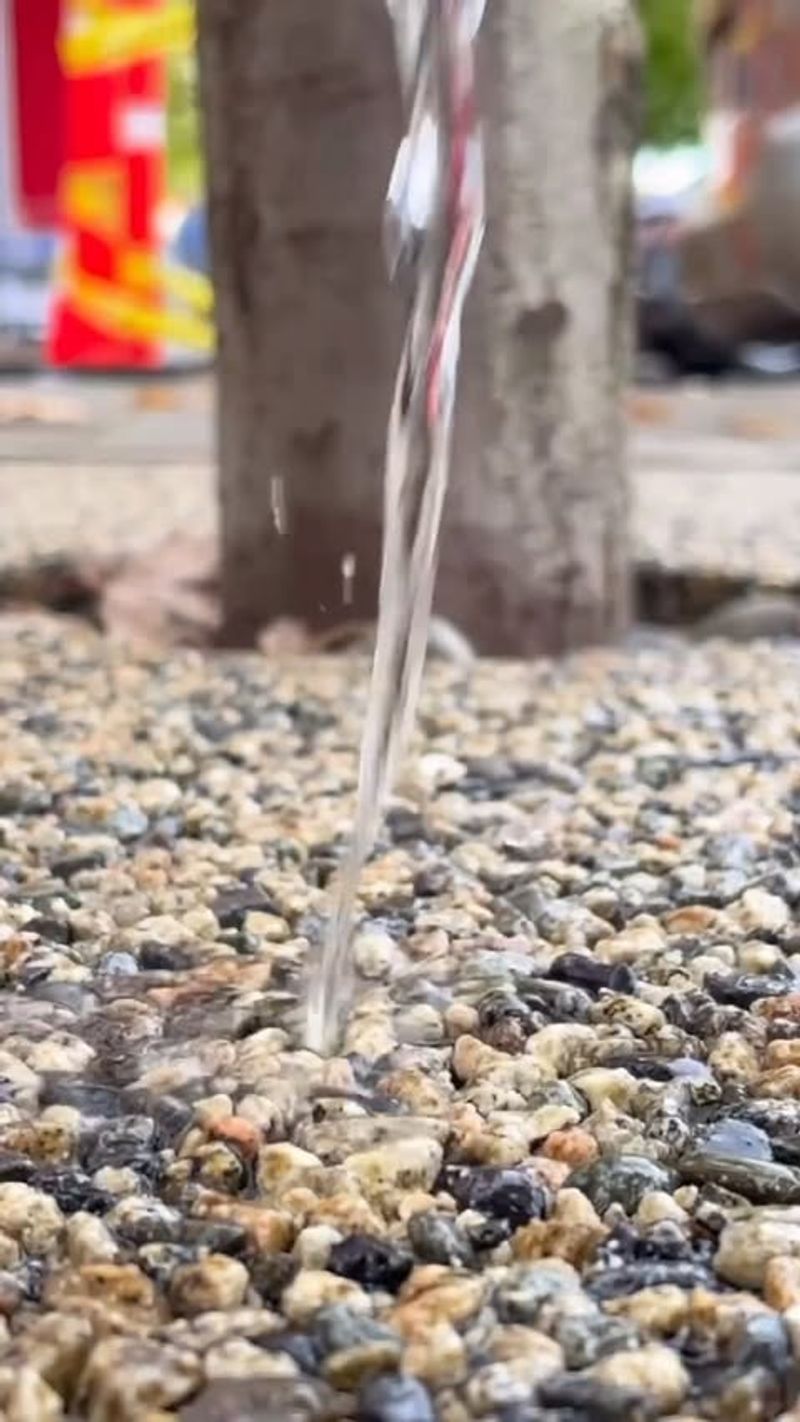
Boiling water is a simple yet powerful weapon against weeds in gravel. By pouring hot water directly onto the unwanted plants, you can effectively kill them instantly. The heat destroys the plant cells, causing them to shrivel and die.
This technique works wonders on young, tender weeds that have just emerged. Plus, it’s chemical-free and safe for pets and children. Just be cautious while handling the boiling water, and avoid splashing on desirable plants. It’s a quick fix that can be done with just a kettle and a little caution.
3. Salt Barrier
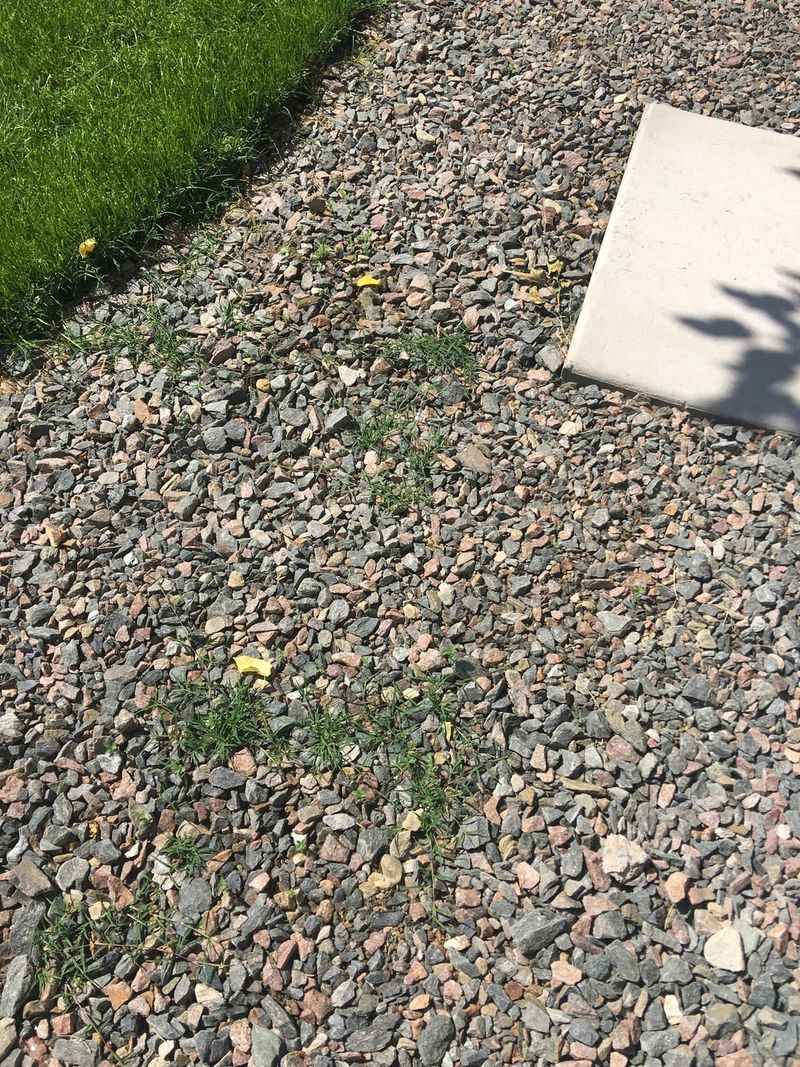
Creating a salt barrier is a time-tested method to keep weeds at bay. Sprinkle table salt generously over the gravel, focusing on areas where weeds frequently appear. The salt dehydrates the plants, preventing them from thriving. However, exercise caution as salt can also harm surrounding vegetation and soil health if used excessively.
It’s best applied in moderation and away from precious flowers or grass. This trick is especially handy in dry, non-rainy conditions, ensuring the salt remains potent. It’s a straightforward, cost-effective solution for persistent weed problems.
4. Landscape Fabric
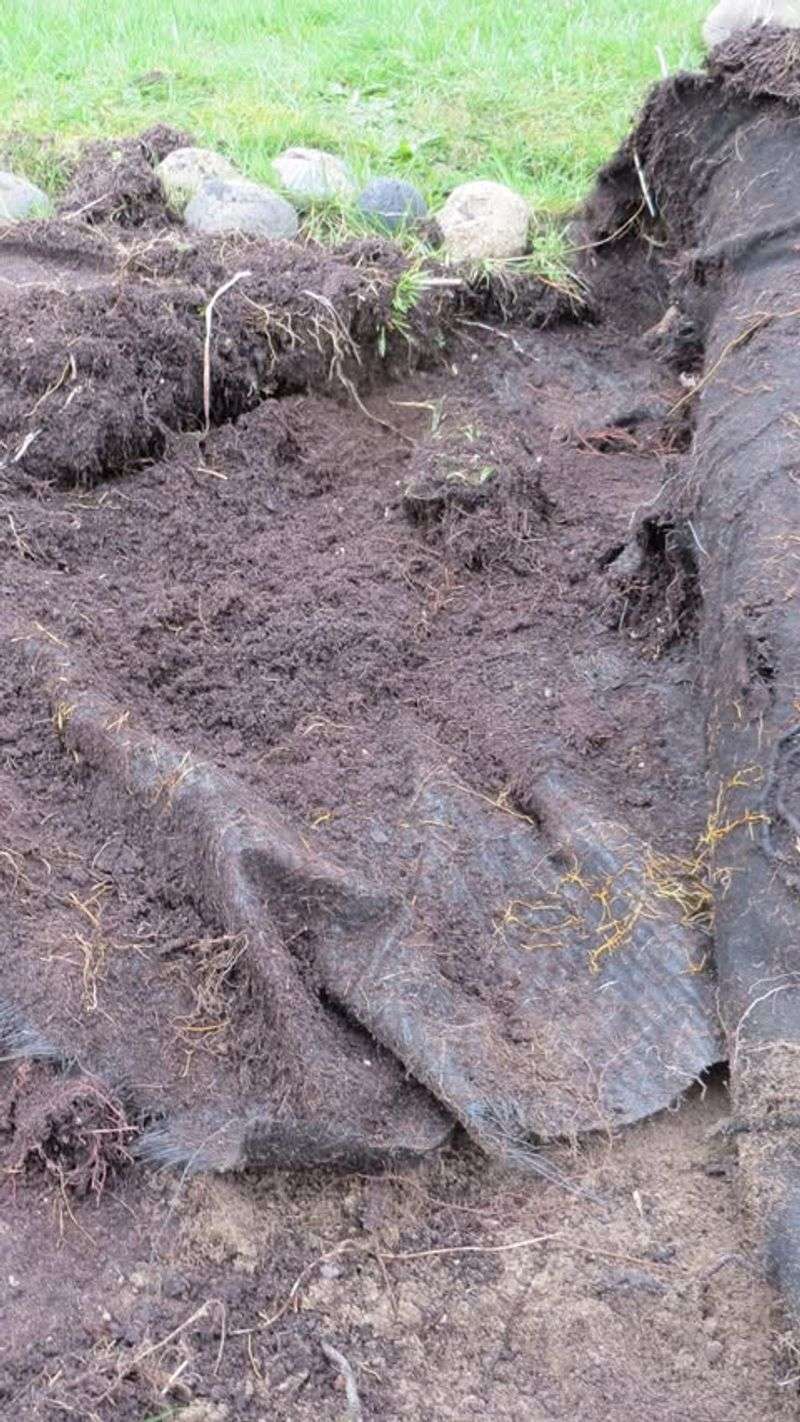
Installing landscape fabric beneath the gravel is a proactive way to prevent weeds. This fabric acts as a barrier, blocking sunlight and hindering weed growth. Start by removing the existing gravel, lay down the fabric, and then replace the gravel on top.
The fabric should cover the entire area, with seams overlapped and secured with pins. While it’s an upfront effort, this method provides long-lasting protection. Just ensure water can still drain through to prevent puddling. It’s a practical solution for large areas where you want to minimize future maintenance.
5. Corn Gluten Meal
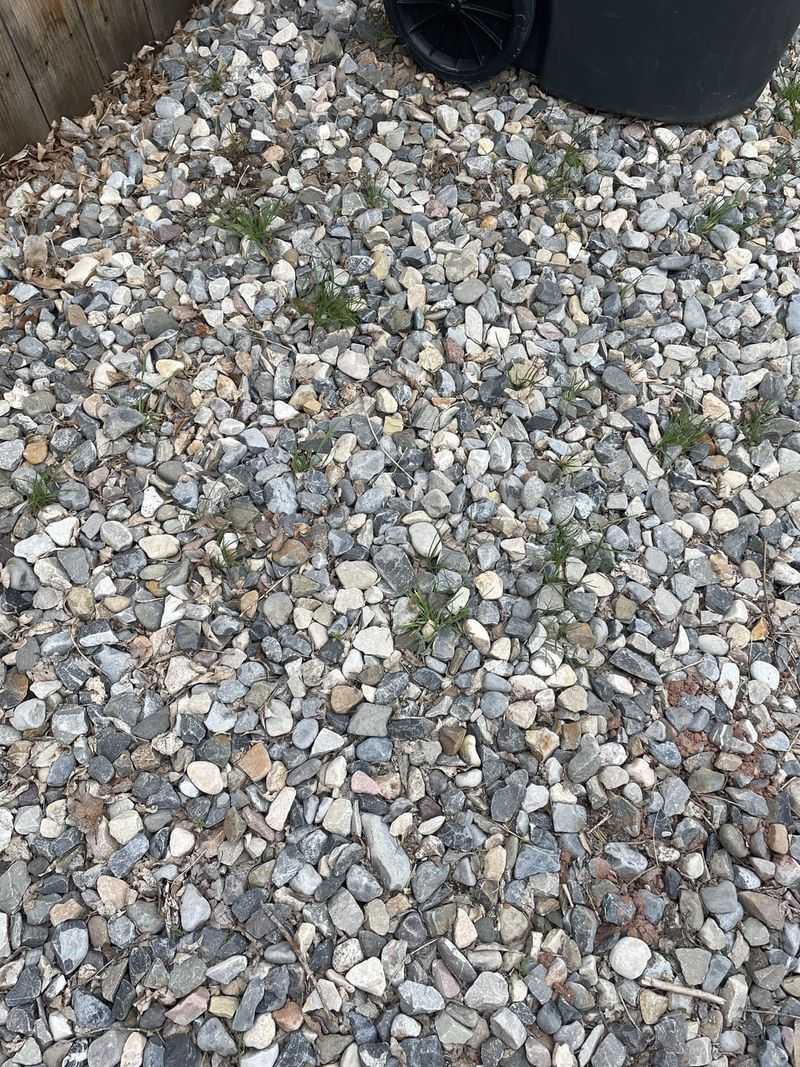
Corn gluten meal acts as a pre-emergent herbicide, preventing weed seeds from germinating. Simply spread the meal over the gravel surface, ensuring an even coverage. This organic method is safe for humans and pets, and it’s a great option for those looking to maintain a natural garden.
However, timing is crucial; apply it before weeds start to sprout, ideally in early spring or fall. This method doesn’t kill existing weeds but effectively curtails new growth. It’s an excellent addition to your arsenal of preventive strategies.
6. Mulching
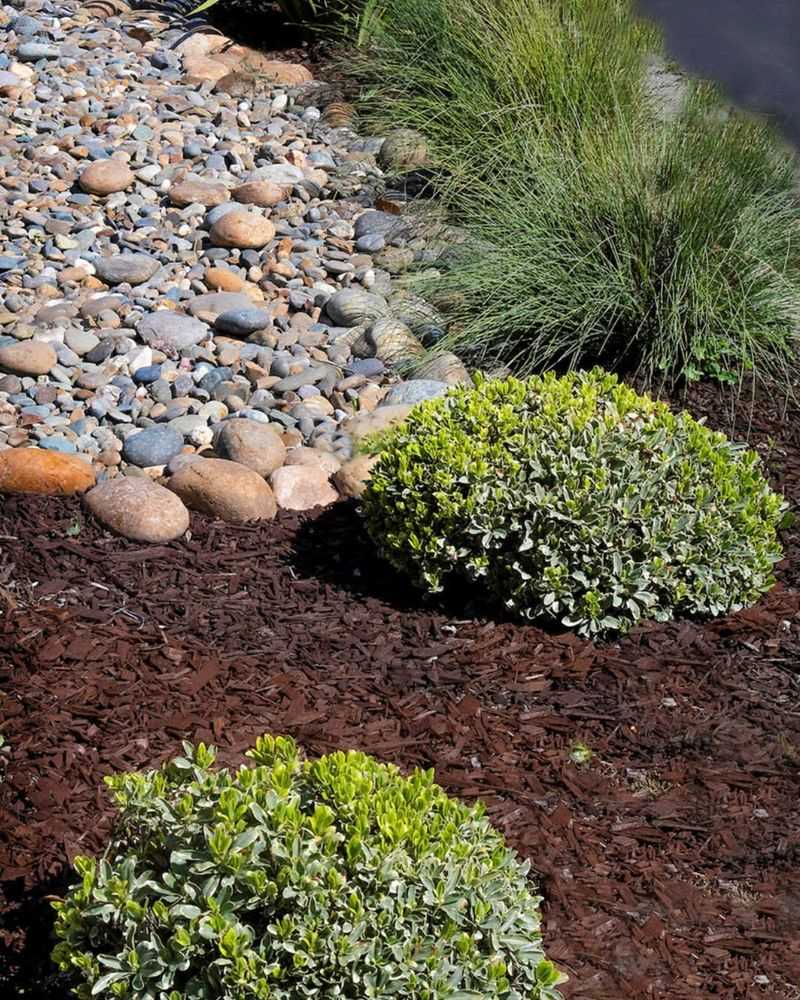
Mulching over gravel can suppress weed growth by blocking sunlight and providing a physical barrier. Use organic materials like bark or wood chips and spread them evenly over the gravel. This not only prevents weeds but also enhances the look of your paths.
Mulch decomposes over time, enriching the soil beneath, but you’ll need to replenish it periodically. It’s a dual-purpose solution—beautifying and protecting your garden from weeds. Perfect for garden paths that need a touch of elegance while keeping those pesky intruders away.
7. Hand Weeding
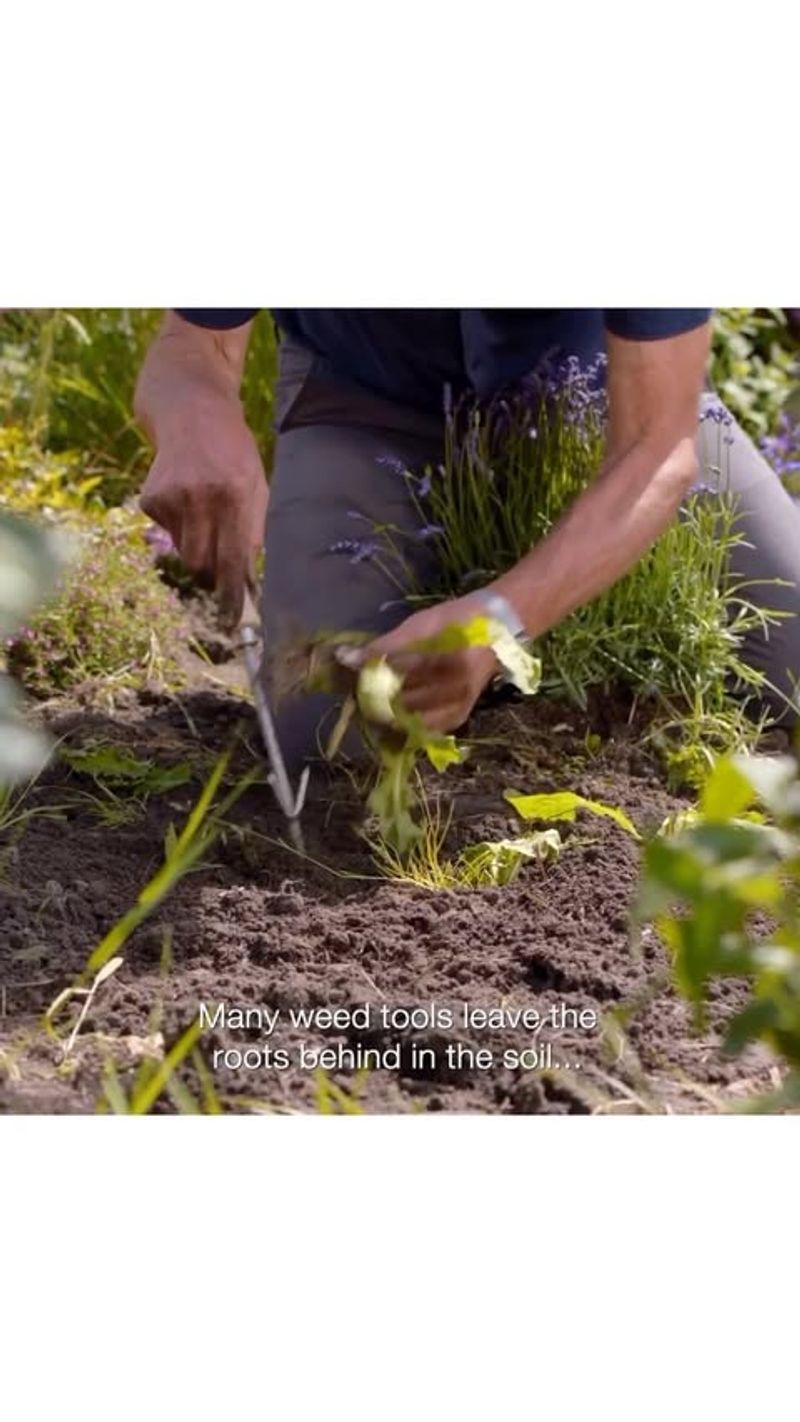
Sometimes, old-fashioned hand weeding is the most effective solution for dealing with gravel weeds. It allows you to target specific weeds and remove them completely, roots and all. Use a small hand trowel or even your fingers to extract the entire plant.
It’s labor-intensive but environmentally friendly and ensures no chemicals touch your garden. This method is perfect for small infestations or when you want to get some fresh air and exercise. Remember to wear gloves to protect your hands and make the task more comfortable.
8. Herbicide Treatment
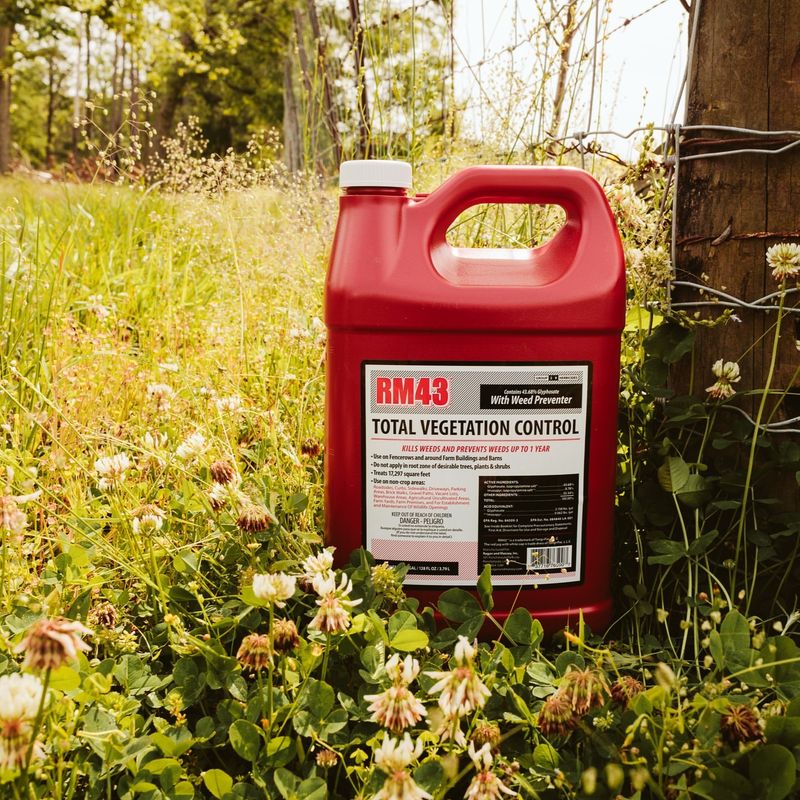
For those dealing with heavy infestations, a herbicide may be necessary. Choose a product specifically designed for gravel areas and follow the manufacturer’s instructions. Herbicides can be selective or non-selective, so targeting the right type is crucial.
While effective, they should be used sparingly to minimize environmental impact. Always wear protective gear to prevent skin contact, and apply on calm days to avoid drift. This method is a last resort for extensive weed problems that other methods can’t control. It’s powerful but demands careful application.
9. Flame Weeding

Flame weeding involves using a handheld torch to burn weeds in gravel. The intense heat destroys the plant cells, effectively killing the weeds. This method is quick and doesn’t involve chemicals, making it an eco-friendly choice. However, it requires caution and should only be used in non-flammable areas to avoid accidents.
Ideal for small patches or paths, flame weeding gives immediate results. It’s a thrilling technique that combines gardening with a bit of flair. Ensure safety measures are in place, and enjoy the satisfaction of watching weeds disappear.
10. Baking Soda
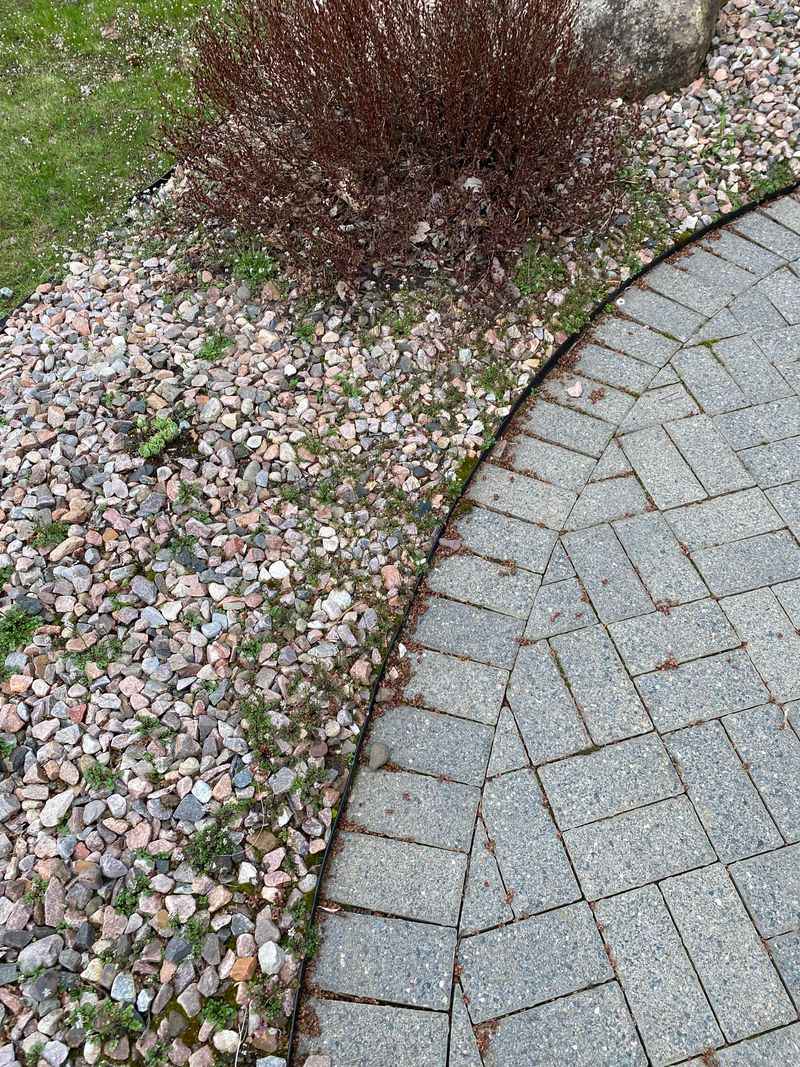
Baking soda is an unexpected yet effective solution to control weeds. Sprinkle it generously over the gravel, focusing on cracks and gaps where weeds thrive. The sodium in baking soda creates an inhospitable environment for plant growth. This method is best for small areas, as overuse can affect surrounding soil quality.
It’s a safe, non-toxic option for those seeking natural alternatives to chemical weed killers. Plus, it’s a handy household item, making it accessible for impromptu gardening battles. Just remember to reapply after heavy rain to maintain its effectiveness.
11. Weed Barrier Edging
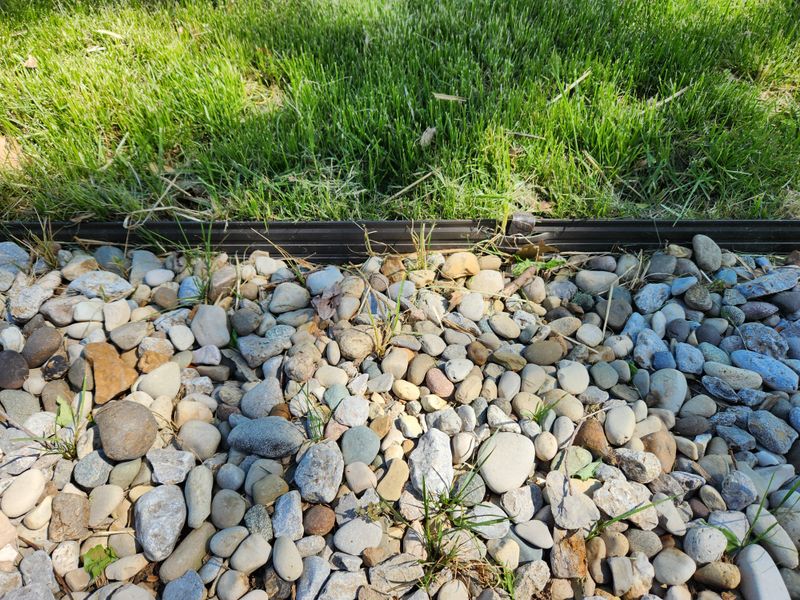
Installing weed barrier edging around your gravel paths can prevent weed encroachment. These barriers act as a physical block, stopping roots and seeds from infiltrating your gravel. Made from materials like plastic or metal, they are easy to install and maintain.
Ensure they are slightly buried to maximize effectiveness, creating a neat and tidy edge. This method is great for defining pathways and maintaining a pristine look. It’s an excellent way to complement other weed prevention tactics, ensuring your gravel remains weed-free for longer.
12. Daily Raking
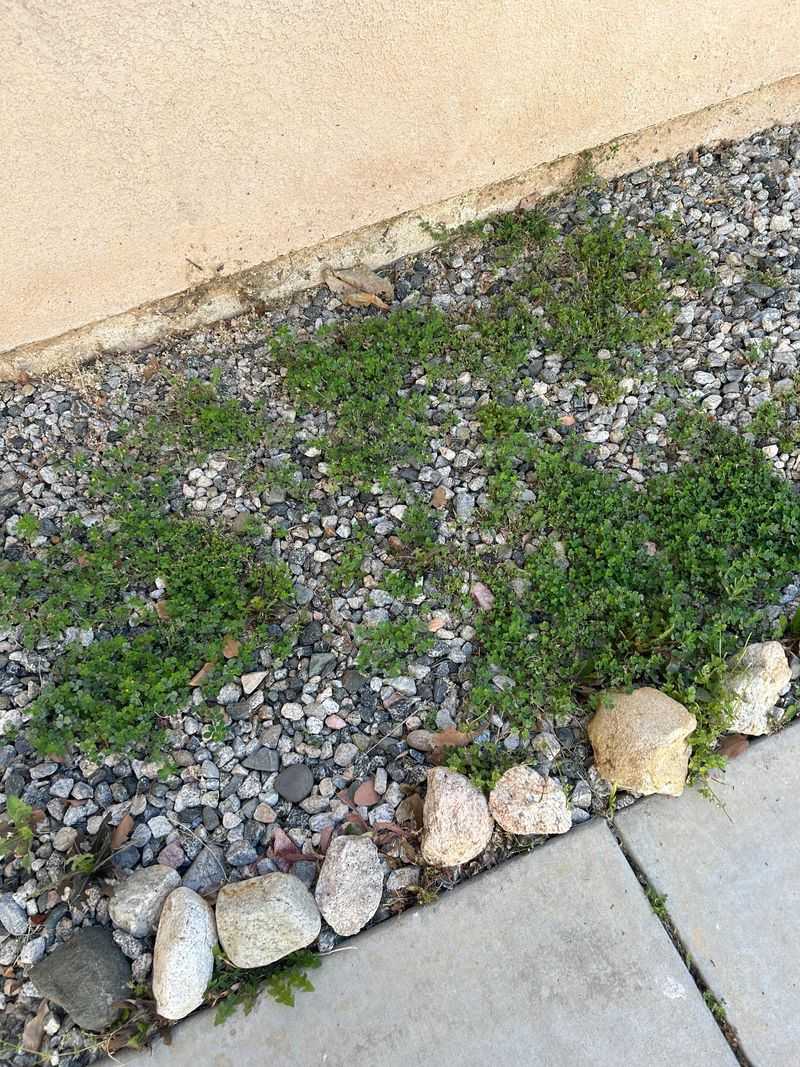
Regular raking of your gravel paths can prevent weed seeds from settling and germinating. By disrupting the surface, you remove debris and expose any budding weeds. This daily ritual not only keeps weeds at bay but also maintains the aesthetic appeal of your gravel areas.
It’s a simple, cost-free method that requires only a rake and a bit of daily dedication. Perfect for those who enjoy a bit of routine in their gardening. Plus, it’s a great way to notice any new weed growth early and address it promptly.
13. Soap Solution
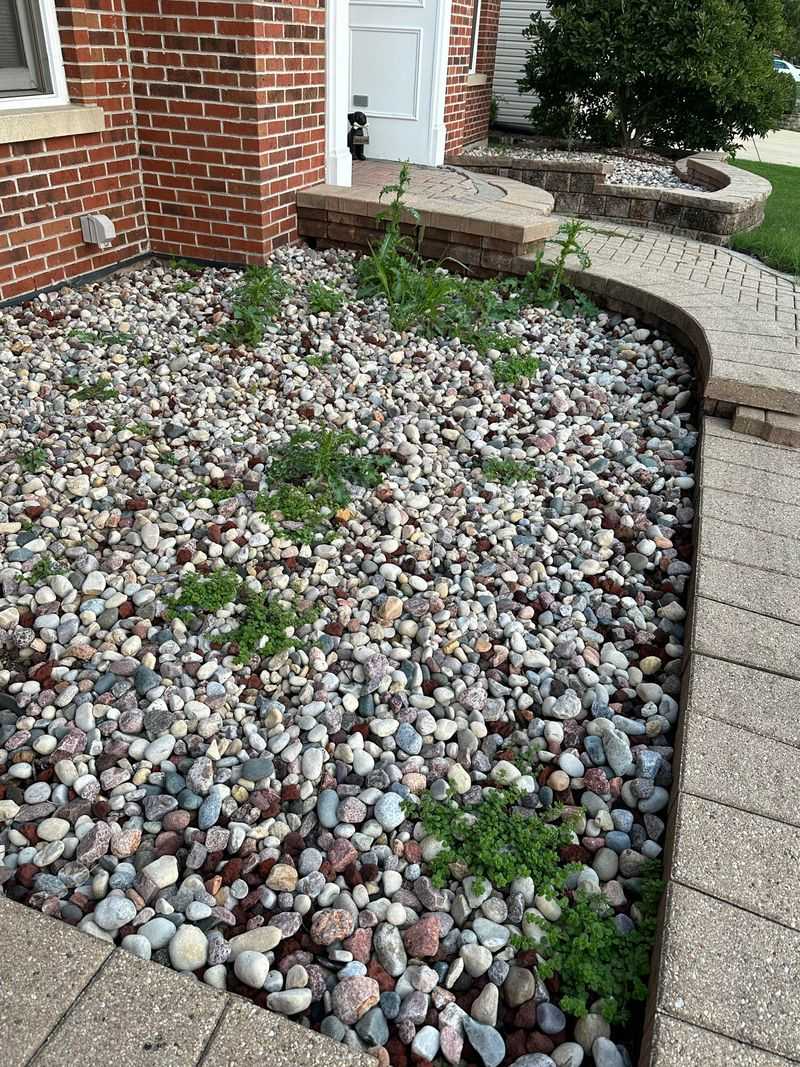
A soap solution can be a gentle yet effective way to tackle weeds. Mix dish soap with water in a spray bottle, and apply it to the leaves of the weeds. The soap breaks down the surface tension of the plant’s leaves, causing them to dehydrate.
This method is safe, inexpensive, and perfect for small areas. It’s a great alternative to chemical herbicides, especially for environmentally-conscious gardeners. Regular application is necessary to keep persistent weeds at bay. It’s a simple, homemade solution that can be whipped up at a moment’s notice.
14. Ground Cover Plants
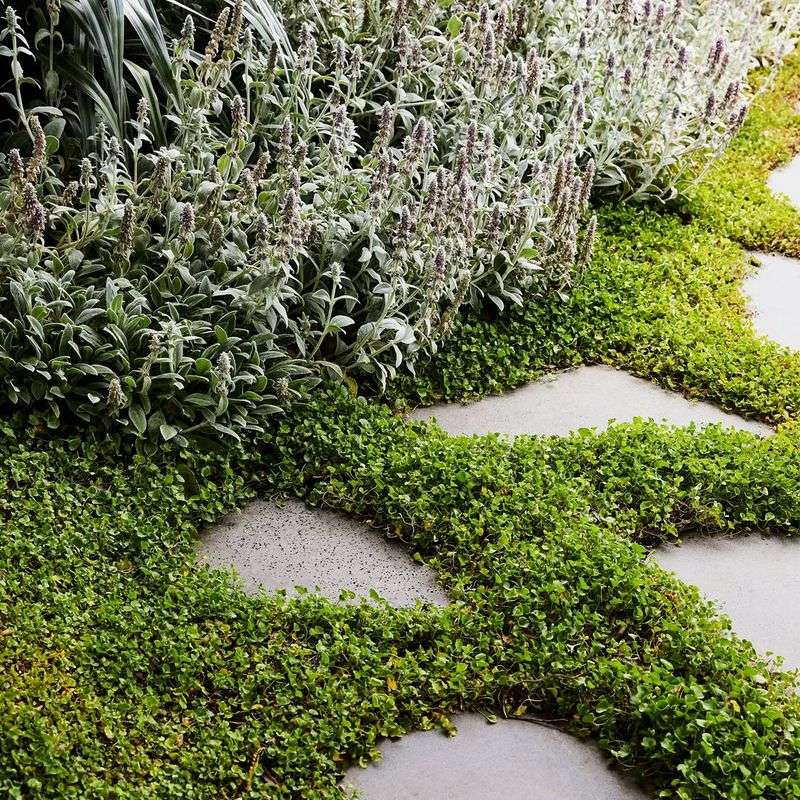
Planting ground cover plants can naturally suppress weed growth by outcompeting them for sunlight and nutrients. Choose hardy, low-maintenance varieties that thrive in your climate. These plants will cover the gravel, reducing areas where weeds can find a foothold.
This method not only prevents weeds but also adds greenery and diversity to your garden. It’s an eco-friendly solution that enhances the beauty of your outdoor spaces. Perfect for gardeners looking to blend functionality with aesthetics. Just ensure the chosen plants don’t become invasive themselves.
15. White Vinegar and Salt
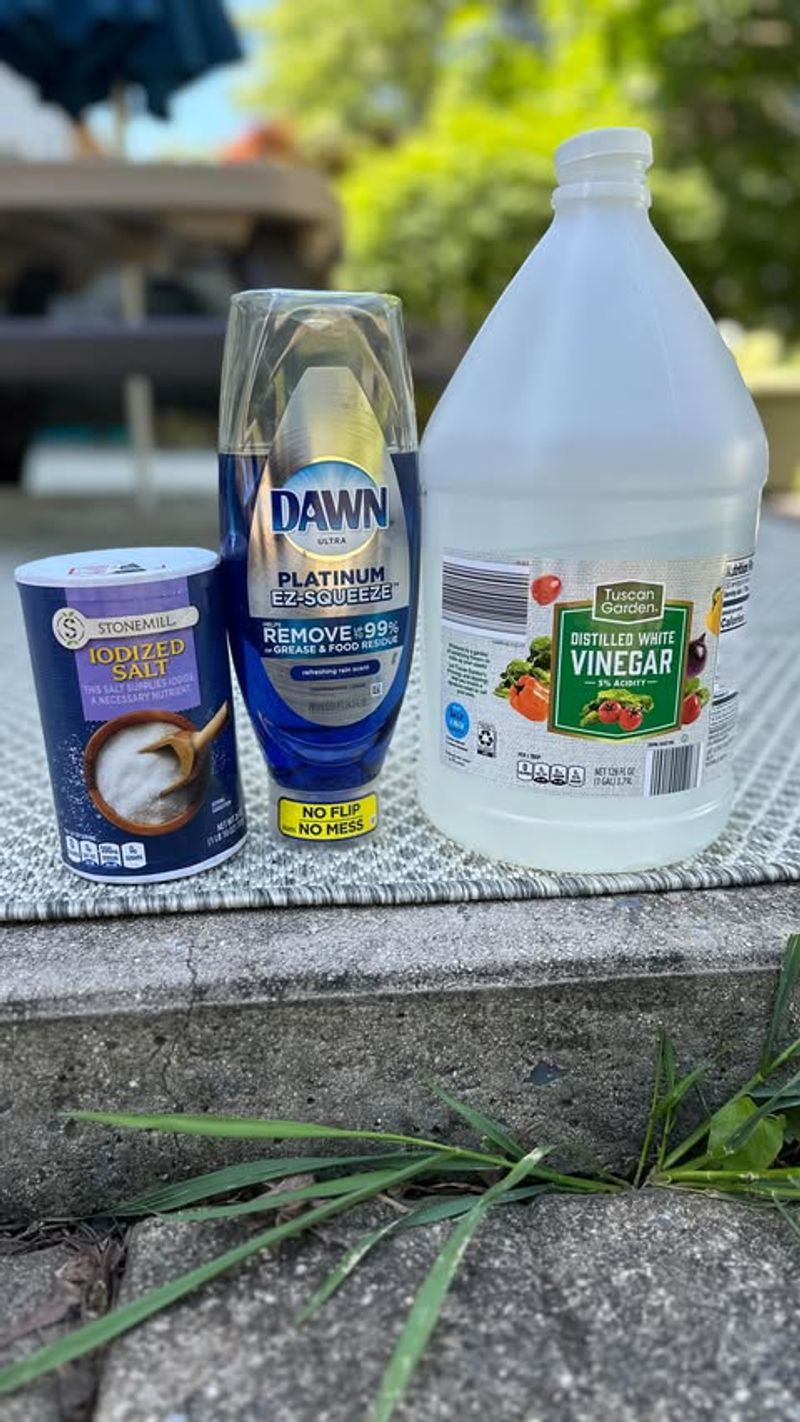
Combining white vinegar and salt creates a potent weed-killing solution. Mix equal parts of vinegar and salt, then apply it to the weeds. The acetic acid in vinegar and the sodium in salt work together to dehydrate and kill the plants.
This homemade herbicide is highly effective for stubborn weeds in gravel paths. However, use it sparingly and avoid contact with desired plants, as it can damage soil health over time. It’s an economical and practical approach for those who prefer DIY solutions. Perfect for spot treatments of persistent weeds.
16. Solarization
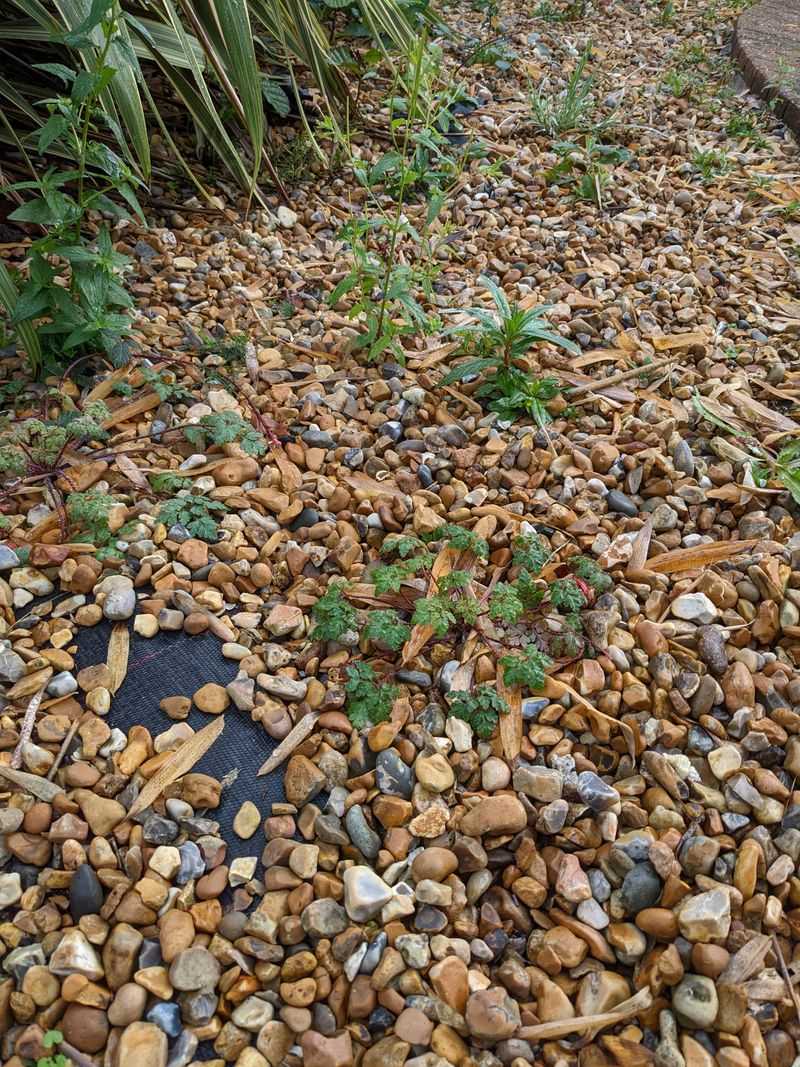
Solarization uses the sun’s energy to kill weeds by trapping heat under clear plastic sheeting. Lay the plastic over the gravel, securing the edges to create a greenhouse effect. The intense heat generated will kill weed seeds and plants beneath.
This method is particularly effective during hot, sunny periods and is a chemical-free approach. It’s a slow process, taking several weeks, but it provides a comprehensive solution for large areas. Ideal for patient gardeners willing to invest time for long-term weed control. Ensure the plastic is tightly sealed to maximize efficiency.
17. Essential Oils

Certain essential oils, like clove or cinnamon oil, can act as natural herbicides. Mix a few drops with water in a spray bottle and apply to the weeds. These oils can disrupt the growth of weeds by penetrating their leaf structures.
This method offers a fragrant, non-toxic alternative to chemical sprays, perfect for small infestations. Essential oils are also pet-friendly and ideal for areas where children play. Regular application is necessary to maintain effectiveness. It’s a delightful way to incorporate aromatherapy into your gardening routine while keeping weeds in check.
18. Gravel Replenishment
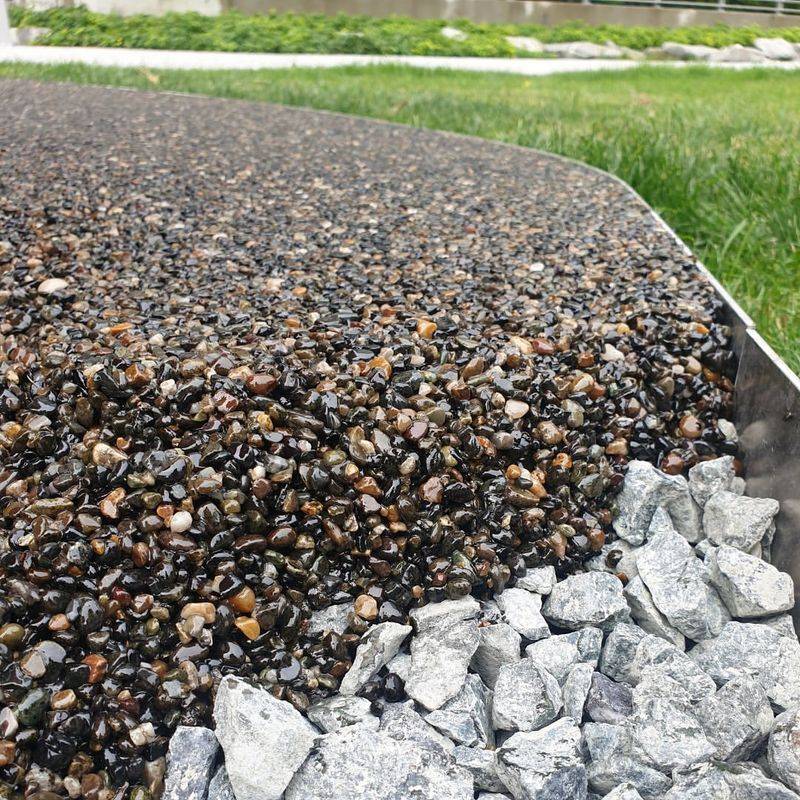
Adding a fresh layer of gravel can smother existing weeds and prevent new ones from emerging. Over time, gravel can settle and thin, creating gaps where weeds find a foothold. By replenishing the gravel, you maintain a dense, weed-resistant layer.
This method also refreshes the appearance of your paths, making them look well-kept. It’s a straightforward strategy that enhances both functionality and aesthetics. Ideal for seasonal maintenance or when preparing your garden for a new planting cycle. Ensure an even spread for maximum coverage and effectiveness.
19. Plastic Sheeting
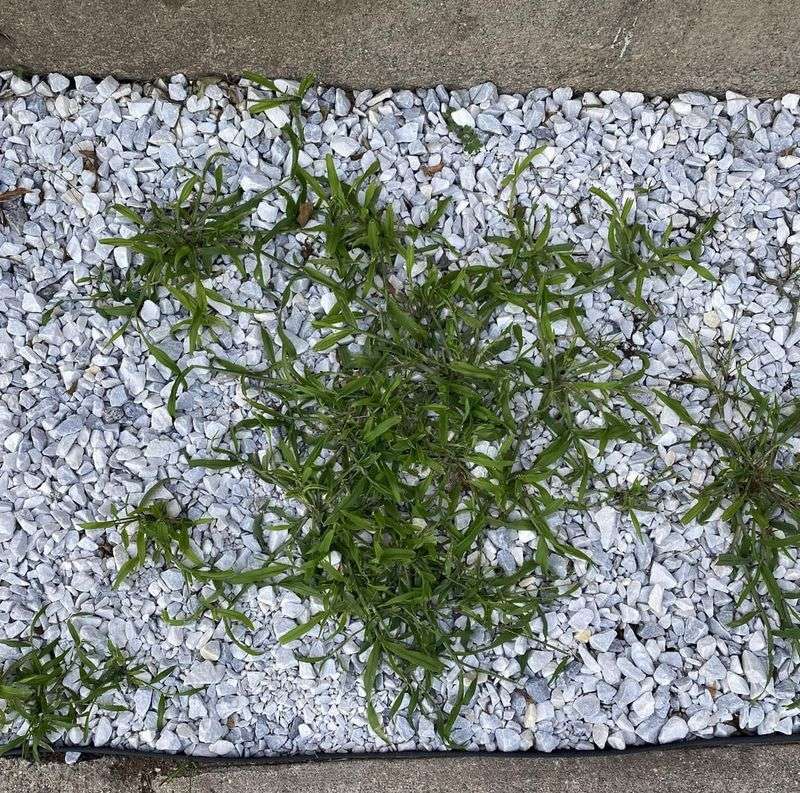
Using plastic sheeting as a barrier beneath gravel prevents weeds by blocking sunlight and creating an inhospitable environment. Lay the sheeting over the area, then cover with gravel. This method is effective for long-term weed prevention in large areas.
However, ensure proper drainage to avoid waterlogging. The sheeting acts as a durable, low-maintenance solution that can last for years. It’s perfect for gardeners seeking a straightforward, reliable way to keep weeds at bay. Just be mindful of the environmental impact and choose biodegradable options if possible.
20. Epsom Salt Solution
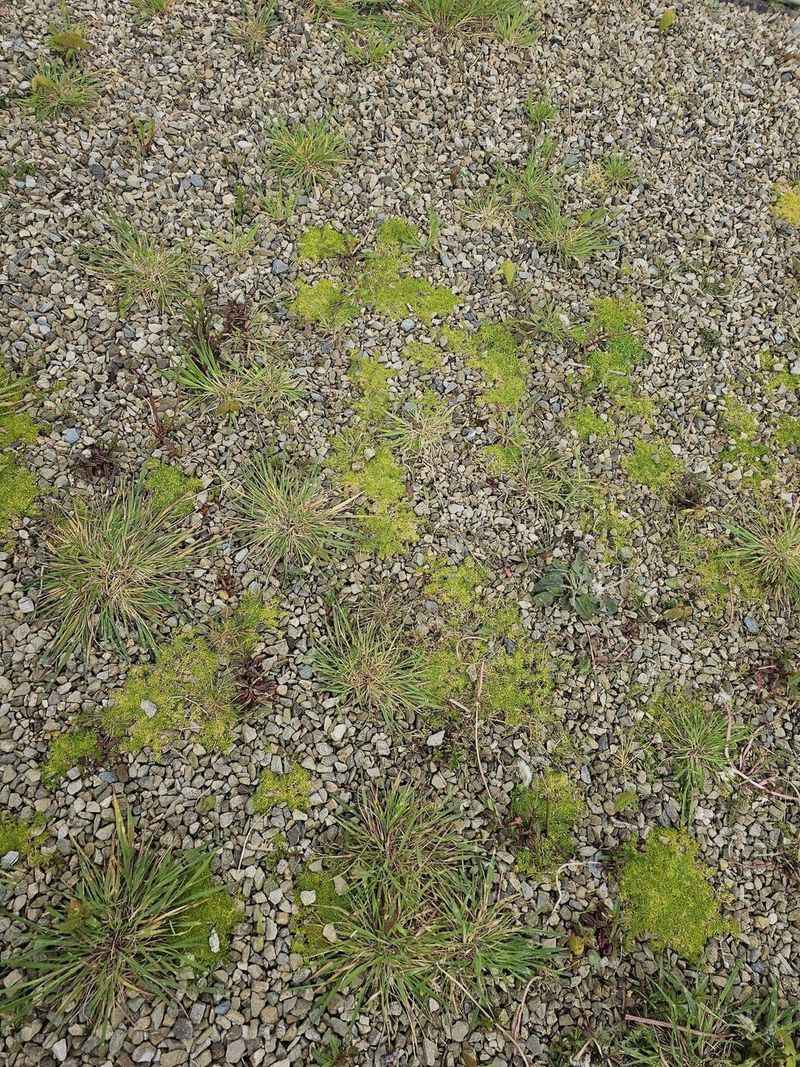
Epsom salt, when mixed with water, can help deter weed growth. Combine the salt with water and apply to weeds using a spray bottle. The magnesium sulfate in Epsom salt affects the weeds’ ability to absorb nutrients, effectively stunting their growth.
This method is best for minor infestations and should be used cautiously to avoid altering soil chemistry. It’s a gentle, cost-effective solution for those who prefer natural alternatives. Perfect for garden paths where weeds sporadically appear. Ensure targeted application to maximize its efficiency and minimize impact on surrounding plants.
21. Frequent Mowing
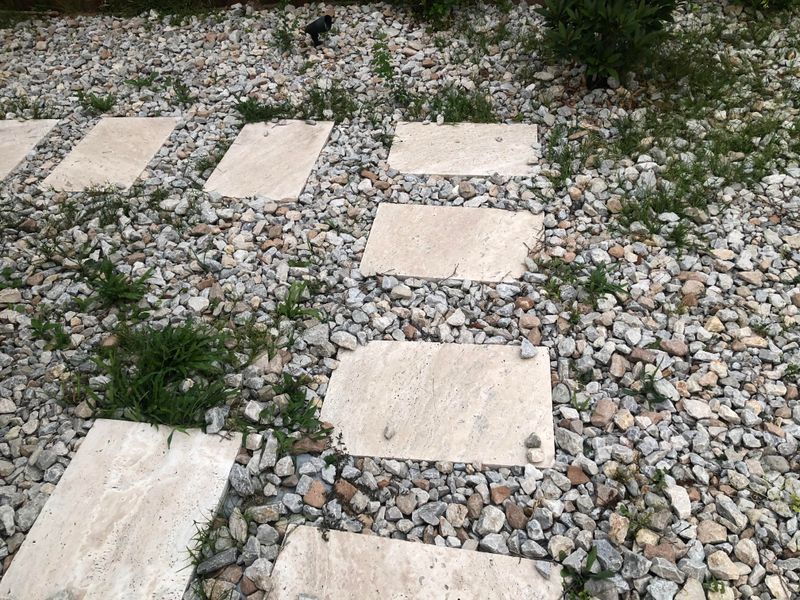
For gravel areas bordered by grass, frequent mowing can keep weeds in check. By regularly trimming the grass, you prevent it from encroaching into the gravel, reducing the chances of weed seeds spreading.
This method is part of a broader integrated weed management strategy, combining aesthetic upkeep with practical prevention. It’s straightforward and requires only a lawn mower and a bit of time. Perfect for those who enjoy maintaining a tidy garden. Consistent mowing also helps spot any emerging weeds early, allowing for quick intervention.
22. Natural Weed Killer Mix
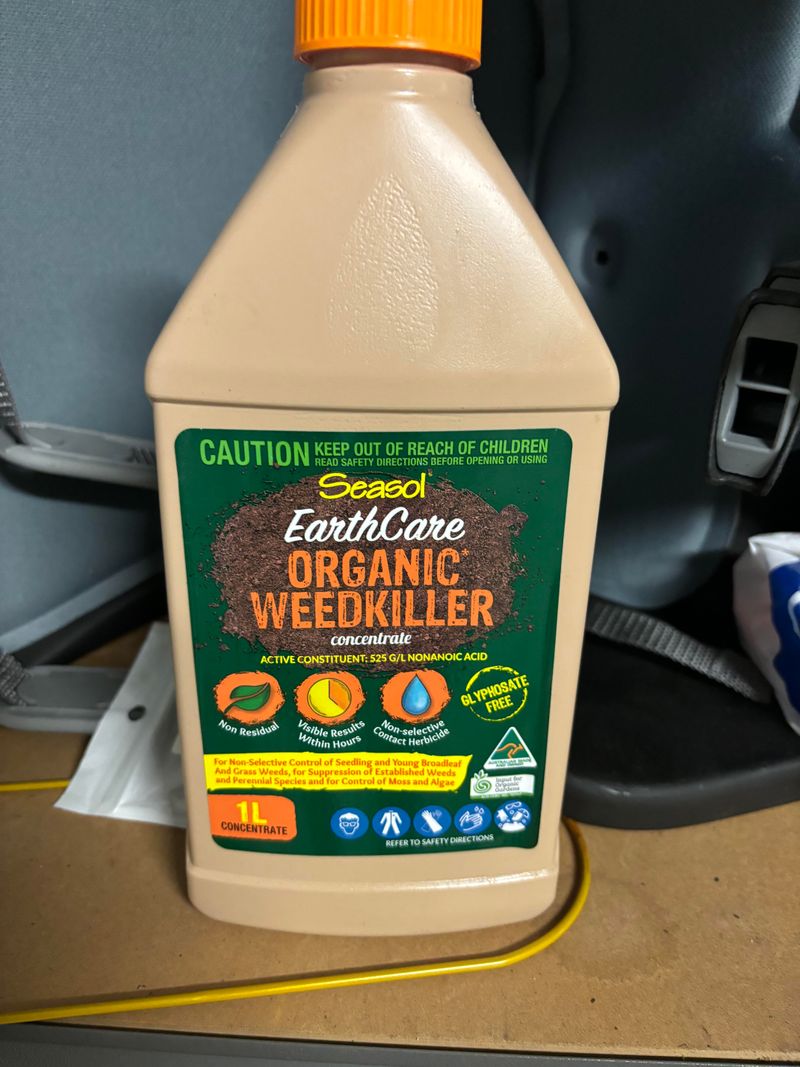
Creating a natural weed killer mix is both effective and eco-friendly. Combine vinegar, salt, and a bit of dish soap in a spray bottle, then apply to weeds. This concoction targets the foliage, causing it to dry out and die. The soap helps the mixture stick to the leaves, enhancing its potency.
It’s a great option for those avoiding commercial chemical herbicides while controlling weed growth in gravel. Ideal for spot treatments and small areas. Remember to reapply after rain and apply carefully to avoid harming desired plants nearby.
23. Flame Weeder
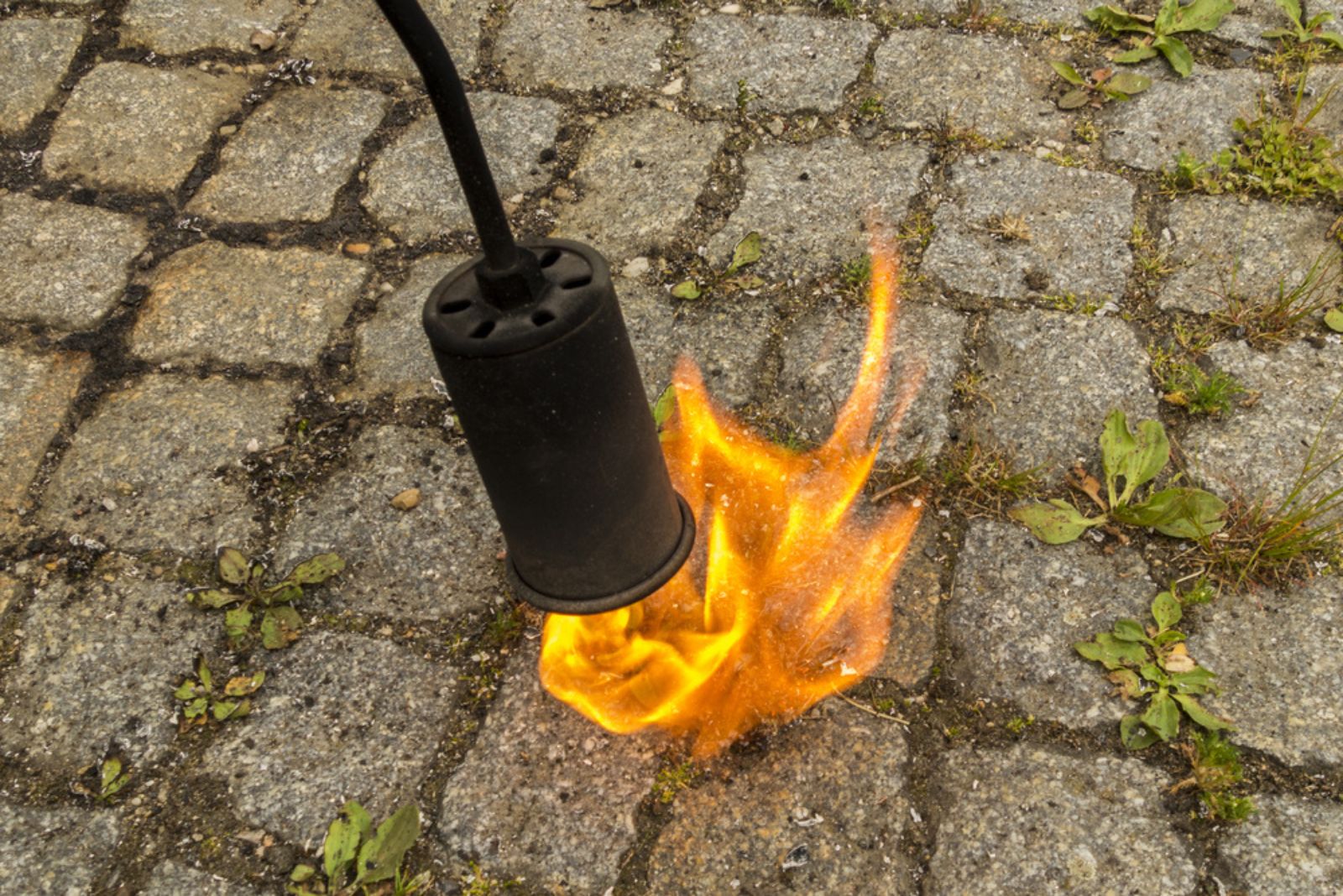
This one’s for the girlies who want to go full savage on their weeds. A flame weeder is a handheld propane torch designed to scorch weeds down to the root. It works best on young weeds and is super satisfying to use—just pass the flame over the plant until it wilts.
The heat destroys the plant’s cell structure, stopping it from bouncing back. Use it between gravel cracks or along edges, but be careful around dry grass, mulch, or anything flammable. Think of it as your gravel’s personal security system.
24. Choose Angular Gravel
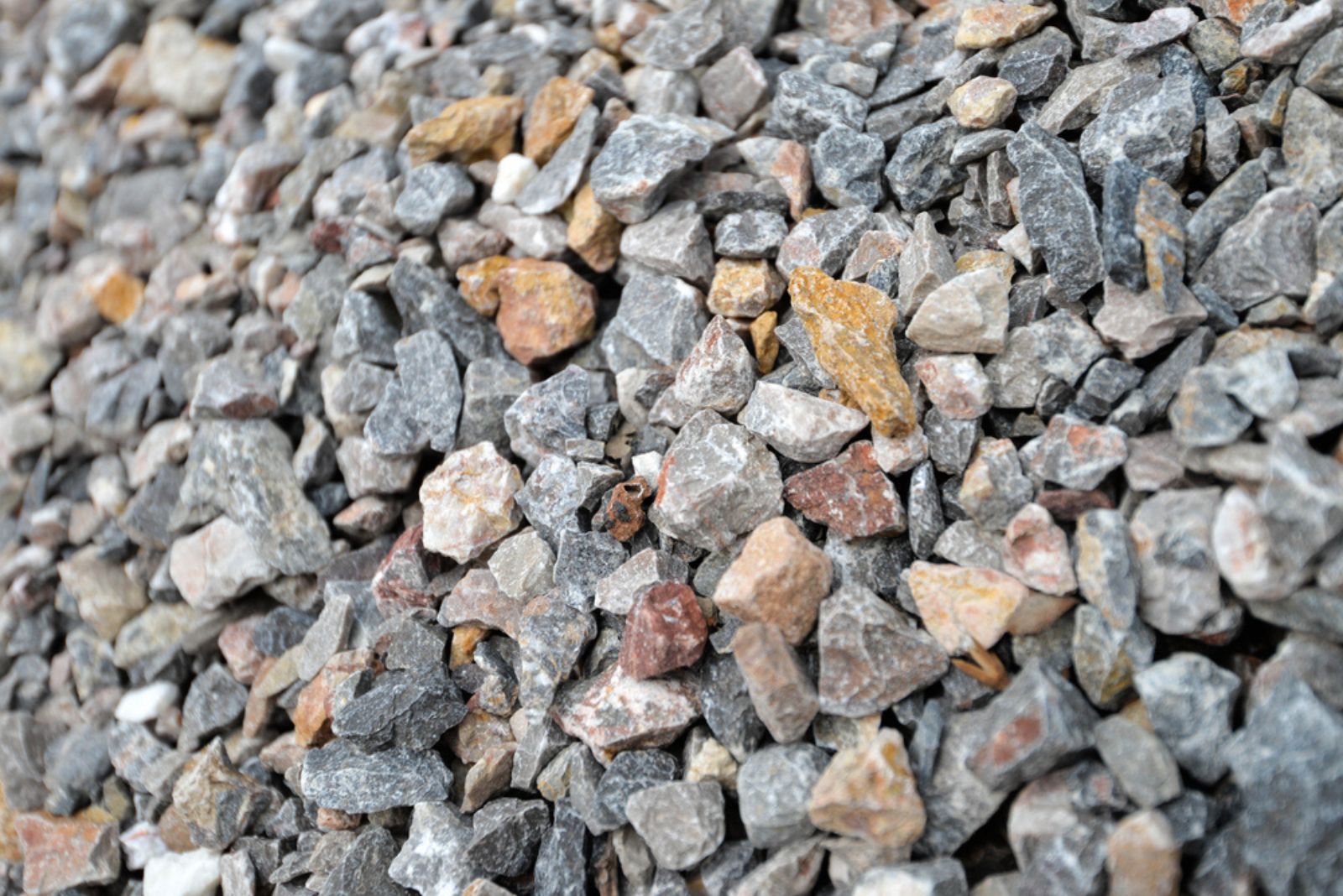
Not all gravel is built the same. Rounded pebbles may look cute, but they shift around easily, leaving gaps where weeds can sneak through. Angular gravel (think crushed stone or crushed granite) has sharp edges that help it lock together tightly.
This makes it way harder for light to reach the soil underneath, which means fewer weeds even have the chance to grow. It’s also less likely to get kicked around or displaced, so your gravel path stays in place longer without constant touch-ups.
25. Cardboard Layer
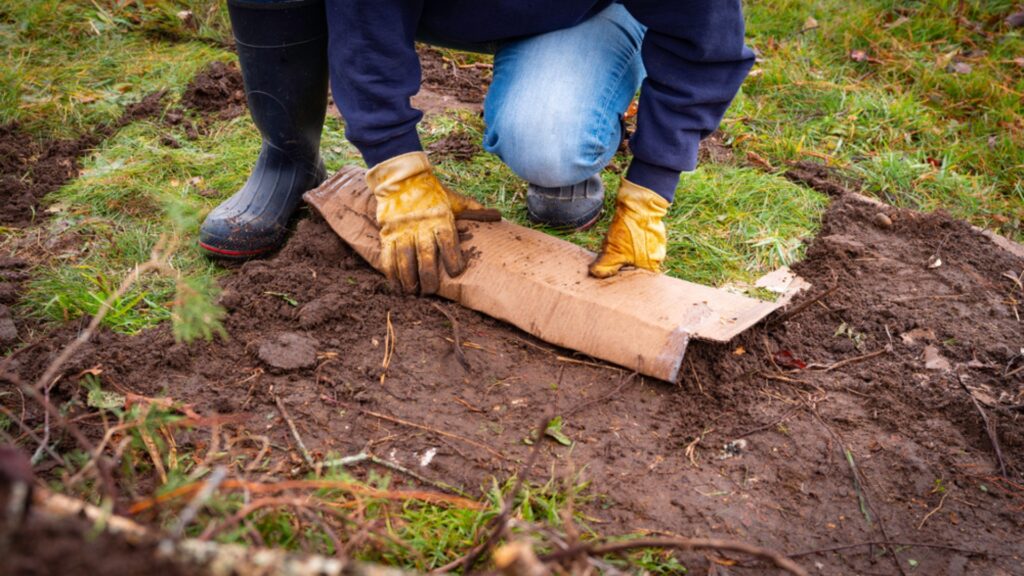
Got some leftover shipping boxes lying around? Put them to work in your garden! Laying down a layer of cardboard beneath your gravel can block sunlight and smother weeds before they even get the chance to sprout. Just flatten out the cardboard, overlap the edges, and cover it with your gravel for an invisible but effective barrier.
Over time, the cardboard breaks down naturally, enriching the soil without letting weeds crash the party. This method is budget-friendly, biodegradable, and perfect for recycling those Amazon packages. Plus, it’s a great combo with other tactics like gravel replenishment for double the defense.
26. Iron Sulfate Solution
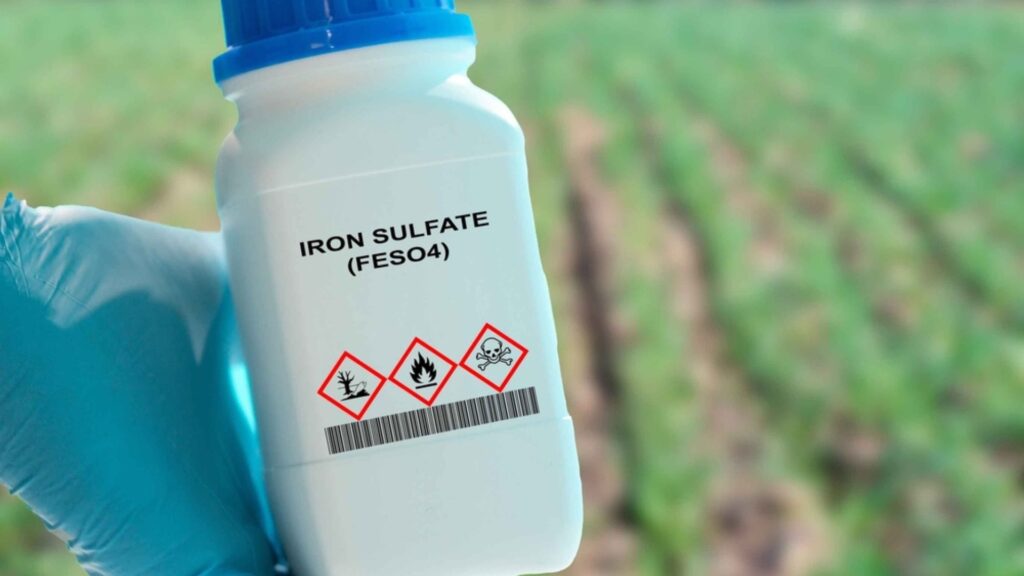
For a targeted, soil-friendly approach, iron sulfate can be your secret weapon. Mix iron sulfate with water and apply it to weeds in your gravel areas. This solution burns the leaves of broadleaf weeds without harming surrounding grasses or soil structure—making it ideal for areas where you want to keep grass healthy but weeds gone.
It’s especially handy for moss and algae too, giving your gravel paths a fresh, clean look. Just follow the package instructions for the right ratio, and you’ve got yourself a stealthy, iron-clad defense against those stubborn green invaders.
27. Torch & Tarp Combo
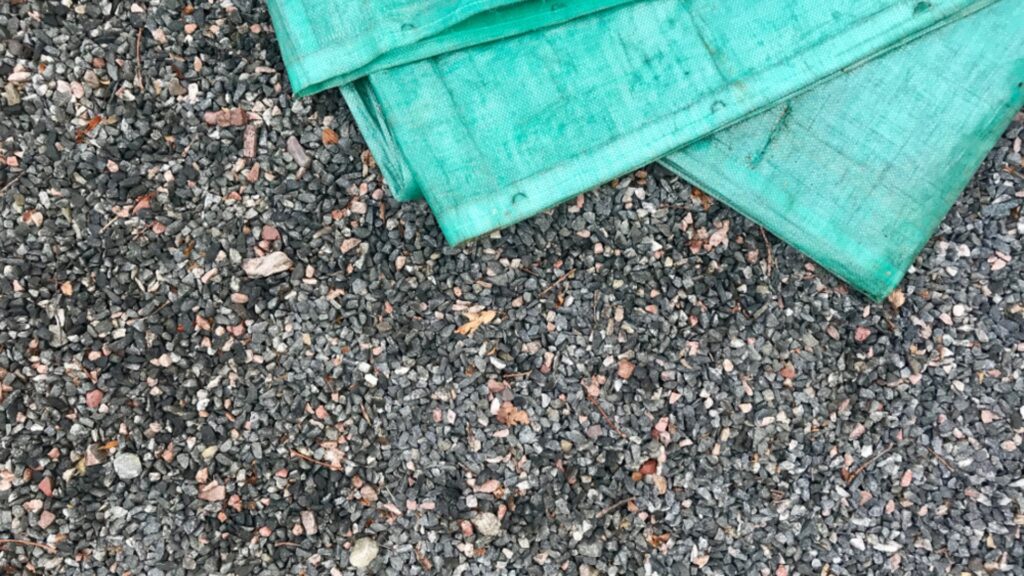
For the ultimate weed control power move, combine two battle-tested methods: flame weeding and tarp cover. First, use a handheld flame weeder to scorch any visible weeds—aim for a quick pass that wilts the plants without igniting anything around. Then, lay a heavy-duty tarp or dark landscaping fabric over the area to block sunlight and trap heat.
This one-two punch not only kills existing weeds but also prevents new ones from germinating. It’s perfect for prepping a gravel area before laying fresh stone or for reclaiming a neglected patch. Just make sure the tarp is secured tightly at the edges to keep it from shifting in the wind. It’s a high-impact combo that’s as satisfying as it is effective.

